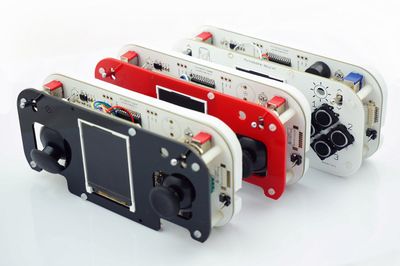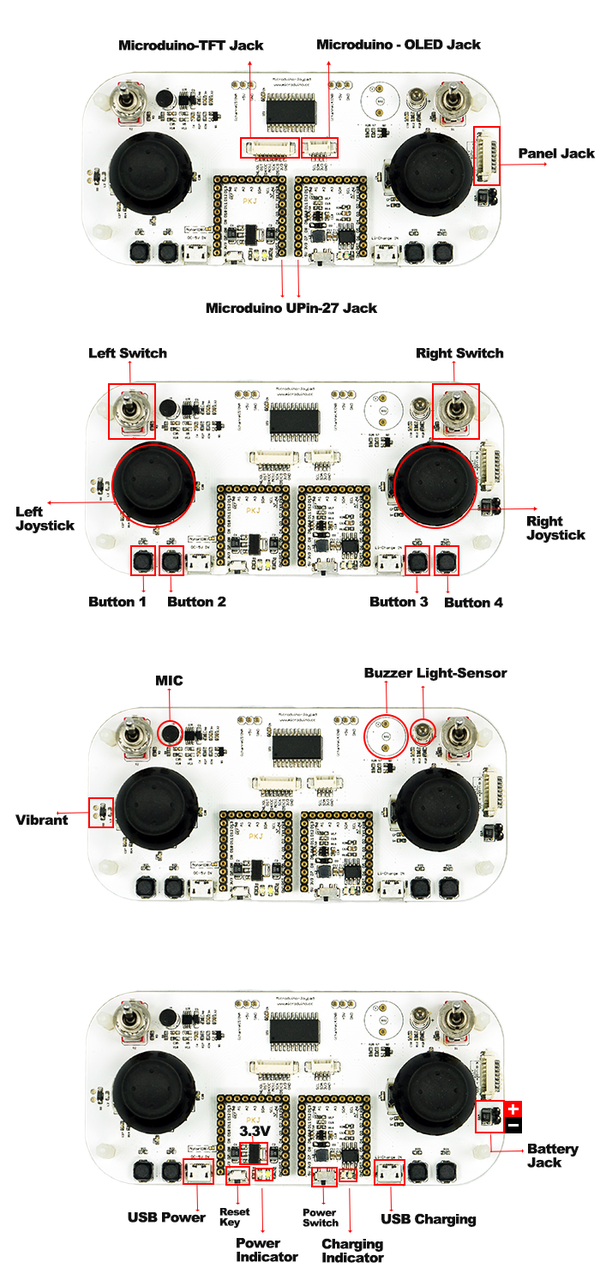Microduino-Shield Joypad
| Language: | English • 中文 |
|---|
|
As an 8-bit retro game console, Microduino-Joypad can bring the simplest pleasure. It is UPin27 interface integrated and AVR, STM32, MSP430 and 51 compatible,owning powerful expansion function. It is also a smart controller, which can easily control a Quadcopter, BOXZ Mini Robot or simulate a computer mouse. ContentsFeatures
SpecificationMultiple Microduino-Joypad options according to different needs; Microduino-Joypad-StandardMicroduino-Joypad-Standard: Two automatic resetting rocker bars on Joypad and a black acrylic panel as well as a Microduino-TFT display screen. Microduino-Joypad-GameMicroduino-Joypad-Game (with a PCB panel and a Microduino-TFT display screen): There are four keys on Joypad arranged in the shape of diamond, which can tell “Up”, “Down”, “Left” and “Right” in the game. Besides, there is an automatic resetting rocker bar. Microduino-Joypad-ConsoleMicroduino-Joypad-Console (with red acrylic panel and a Microduino-TFT display screen): The two rocker bars on Joypad can be treated as the controller, such as controlling quadcopter and robot. Microduino-Joypad-OLEDMicroduino-Joypad-OLED: The two rocker bars on Joypad can be reset automatically. This version is equipped with PCB panel and Microduino-OLED display screen.
Document
DevelopmentIt can not only support Arduino’s AVR series but also STM32, MS430 and 51 series, covering almost all the existing popular applications. Microduino-Joypad development board integrates rich sensors and two parallel UPin27 interfaces, which makes it a flexible, powerful and interesting device capable of DIY as well as unlimited expansion possibilities. Getting Start: Microduino-Joypad Getting start ApplicationMicroduino-Joypad Application Tutorial PurchaseHistoryPicturesVideo |






